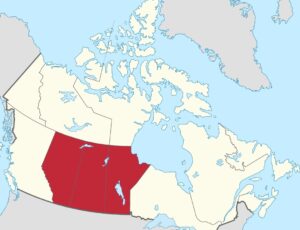Causes of high Canadian winter losses
Winter honey bee colony losses in Canada have been enormous, much higher than normal even for a country with such cold winters. Losses of 50% have been reported by some beekeepers in the key beekeeping province of Alberta and up to 90% in Manitoba. Last winter was one of the harshest winters of recent years, especially in the Prairie provinces, but there were other underlying causes.

We have been asking our contacts in Canada what they think the causes might be and they suggest several possibilities but point to the varroa mite as being high on the list of suspects.
Mites have developed tolerance to amitraz-based treatments, so beekeepers would do well to pay even more attention to integrated pest management (IPM) principles, monitoring mite drops and using a rotation of different products to gain better control of mite populations.
There were reports in spring 2021 of high mite loads, even after spring treatments, and it becomes increasingly difficult to treat for mites during the honey flow. So, colonies were already damaged by mites going into the fall of 2021. Those who treated for varroa in the fall using formic and/or oxalic acid were often successful in saving their bees.
The summer of 2021 in Canada was very hot and dry. Honey crops were down by 25-60%. That also meant there was a lack of pollen sources for developing winter bees. Pollen supplements, such as Vita feeds could have helped the development of healthy winter bees. Those who did feed supplements appear to have been more successful.
There was also something of an illusion of strong colonies going into winter. Some strong colonies probably had high proportions of summer bees but few winter bees, thereby giving the impression that colonies were strong. They weren’t. Colonies like this are likely to keep their populations until mid-March in the following spring and then they perish.
Anecdotal reports also suggest that nosema may have been a factor. One beekeeper who had lost 60% of his colonies, recalled that his colonies had several million nosema spores when he tested them last July. He hadn’t used Fumagilin-B (now available in Canada) but he says he will now.
